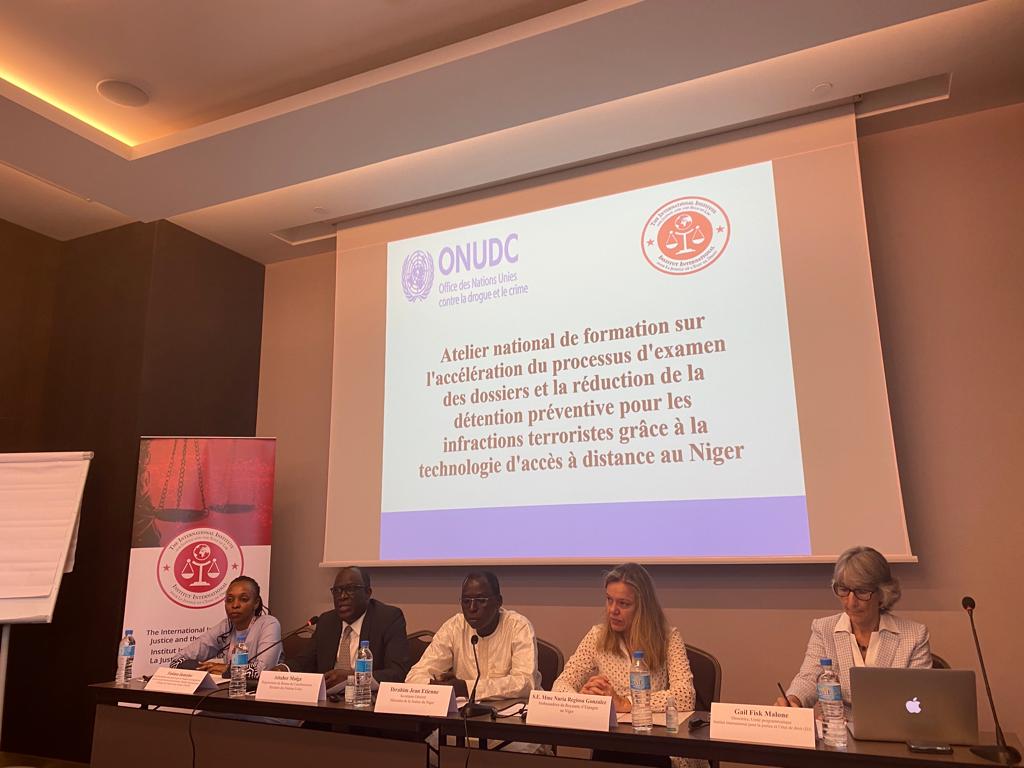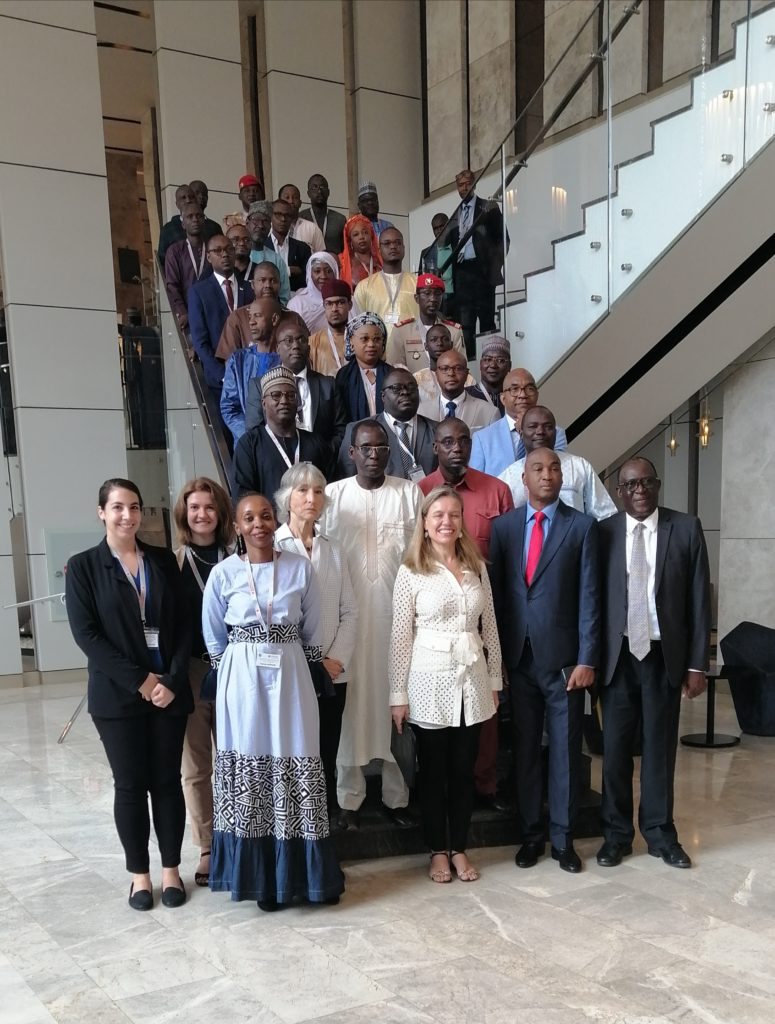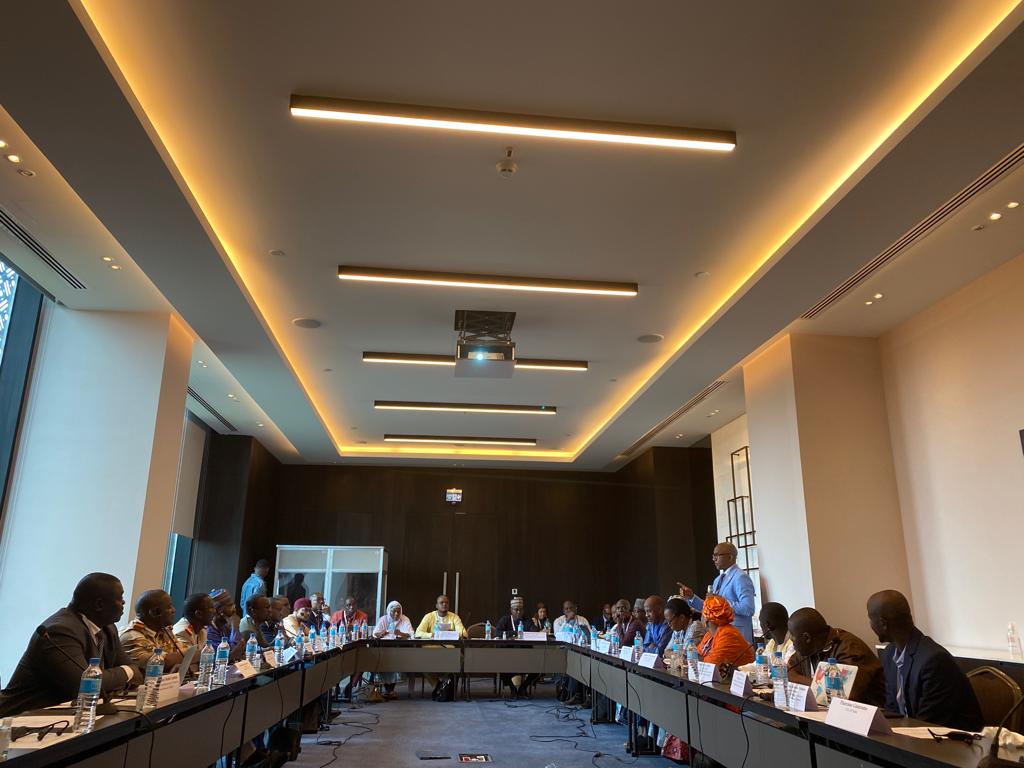
In July 2022, the IIJ and the United Nations Office for Drugs and Crime (UNODC) convened a workshop in Niamey to assess the feasibility and interest of Nigerien practitioners to introduce videoconferencing technology into preliminary proceedings, in hopes of reducing unnecessary and prolonged pre-trial detention for suspects.
Nearly 30 of Niger’s top echelon of counter-terrorism practitioners joined the workshop, including judges and prosecutors from the anti-terrorism specialized judicial Pole, officers from the Central Service for Countering Terrorism and Transnational Organized Crime, the president of the Nigerien Bar association, the Director of the National Judicial Training Academy, members of the National Committee for the revision and drafting of the Penal Code and the Code of Criminal Procedure, and others. They were joined by representatives of the Ministry of Telecommunications, as well as private telecommunication companies.

Participants discussed in detail the legislative framework required to use videoconferencing technology in criminal justice matters, addressing specifically the importance of safeguarding the rights of the accused, victims and witnesses, ensuring defence counsel access to the proceedings and guaranteeing confidentiality while introducing remote access tools. They also assessed existing technological infrastructure, its challenges and possible solutions and the possibility of public-private partnerships to ensure that the reform would benefit from Information Technology support. Moreover, participants examined the needs for training of staff and explored possibilities of collaboration with training institutions and other partners both in Niger and abroad.

As a result of the workshop, participants drafted a list of recommendations for a pilot project to introduce remote access technologies at the pre-charge phase of terrorism cases, connecting prosecutors at the terrorism-specialized Pole in Niamey with suspects detained at the Central Service for Countering Terrorism and Transnational Organized Crime’s satellite in Diffa, a city in Niger’s southeast that is hard hit by terrorism. The recommendations covered key considerations for the proposed project, such as the technological requirements, the practical and logistical challenges associated with implementation, a plan for awareness-raising activities, outreach and partnerships required to implement the pilot project, and the regulatory framework. The current examination and reviewing of the Penal Code and Code of Criminal Procedure is timely for this project.
The potential benefits of introducing remote technology at this stage in terrorist cases are vast. Videoconferencing technology would afford suspects in Niger with earlier access to legal assistance; allow prosecutors to assess the weight of the evidence before authorizing prosecution and ordering that the defendant is transported to Niamey; reduce costs associated with transporting detainees from remote regions to the capital; minimize unnecessary pre-trial detention and its attendant harms; and minimize or even eliminate the frustration, disenfranchisement and vulnerability associated with lengthy pre-trial detention and ultimate dismissal of charges.
Participants’ deliberations showed that there is a consensus on the relevance of introducing technology in judicial proceedings. UNODC and the IIJ are committed to continuing cooperation on judicial capacity building in Niger and the wider West African region.
For more information on this workshop, please contact Programme Manager, Alla Dyubanova.
